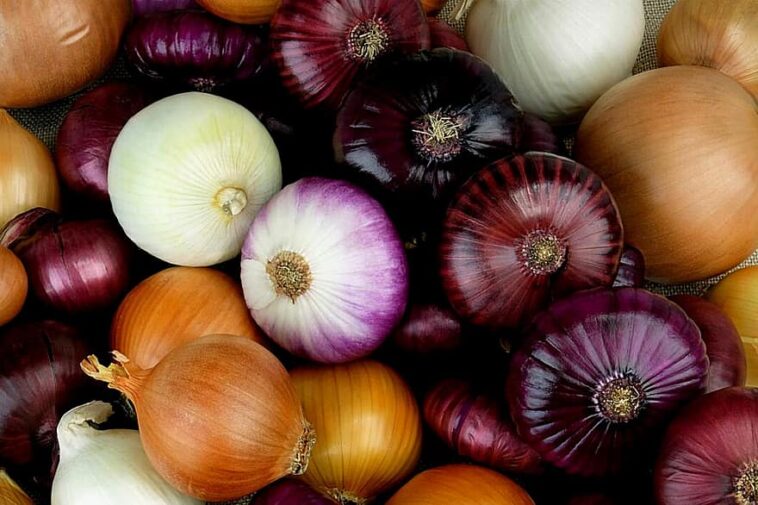Cooked in all kinds of sauces, onions are featured in many savory recipes. Sliced, then added raw, caramelized or simply a little tender in our dishes as a vegetable or condiment, they bring flavor and many benefits for our health. However, it is not uncommon for a recipe to suggest using it without giving more details. However, between red or yellow onions for example, the differences are notable. In this article, we invite you to discover all these subtleties to always choose the best variety from the market gardener to add to your raw or cooked dishes.
1) Yellow onions for long cooking
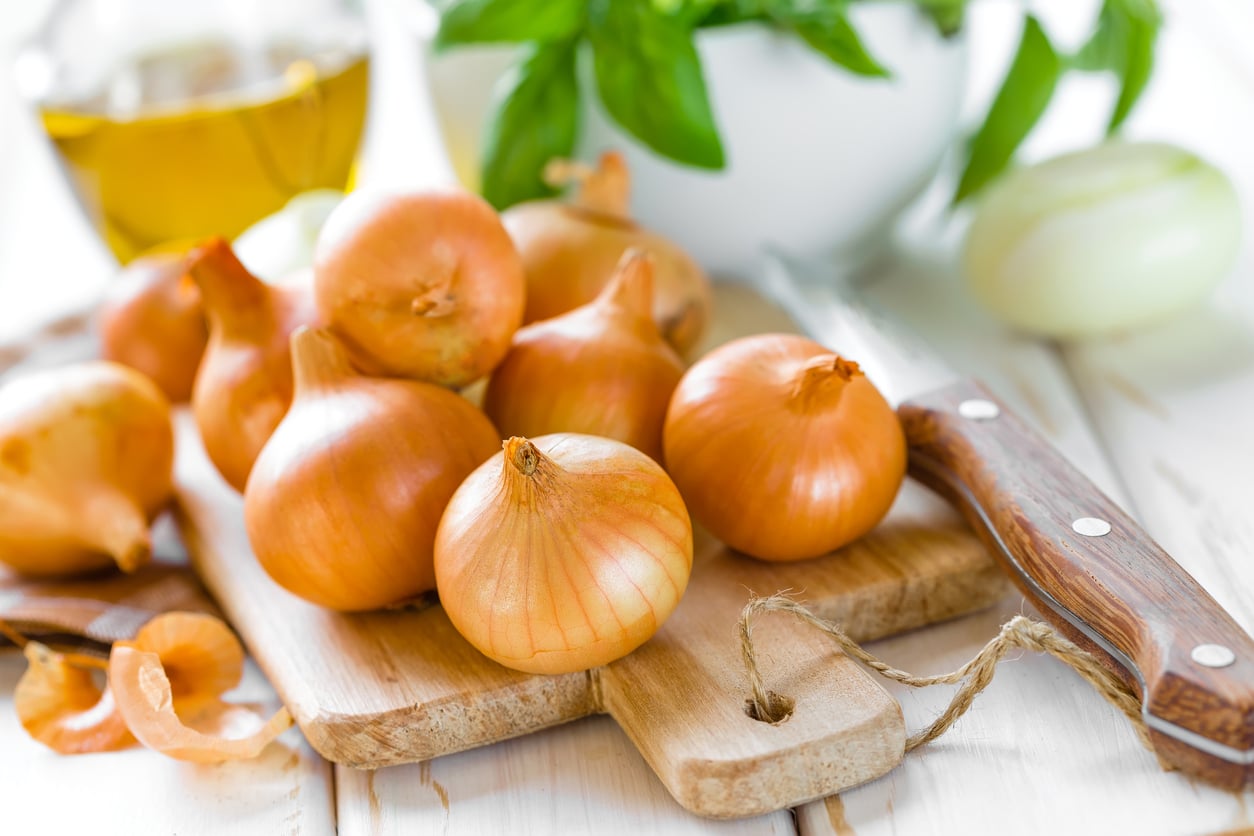
Yellow onions are certainly the most ‘all-purpose’. They are grown and cooked all over the world. It must be said that the straw onion, as it is sometimes nicknamed, offers a pronounced and generous taste which turns out deliciously when cooked. Once browned, or even caramelized, it adds a real plus to all simmered and traditional dishes (sauces, soups, pies, stews, gratins, roasts, etc.). Of all, it is undoubtedly the one that best supports long cooking. It also has a long shelf life as long as it is stored in a dry, cool and dark place. Only problem: it has a smell as powerful as its flavor and can easily make us cry if we don’t take a few steps to avoid it.
2) Red onions to eat in salad
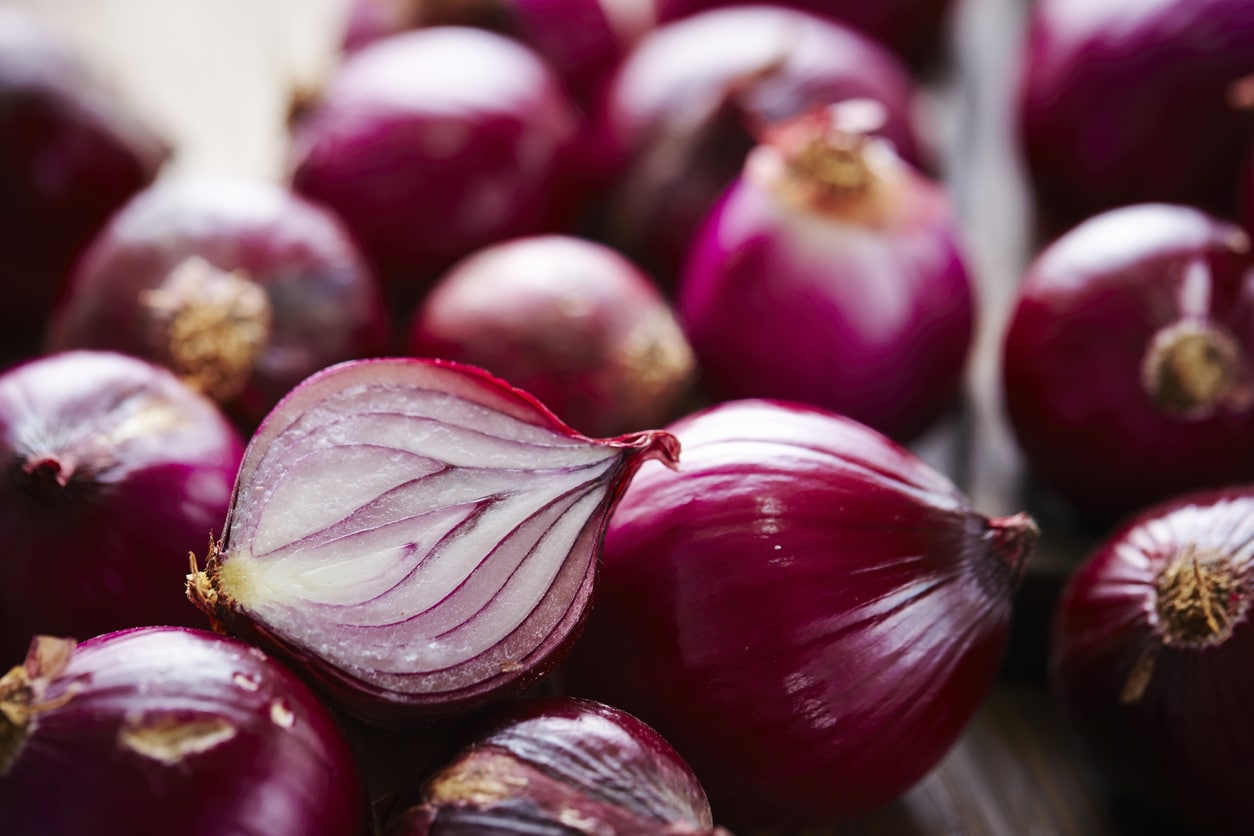
The red onion is very crunchy, and has a slightly spicy and tangy flavor in the mouth (without being harsh!). This is why it is not uncommon to use it in salads, burgers and other sandwiches to give them dimension and a more interesting texture. Unlike his cousin, he however, tolerates cooking less well which makes it lose all its freshness. To enjoy its sweet flavor to the fullest, prefer to eat it raw.
We nevertheless readily forgive this little defect in this pinkish or light purple onion, because it can also use in our pickle recipes homemade (vegetables macerated in vinegar). In addition, when you like sweet and sour foods, you can eat them with your eyes closed. for candied recipes as an accompaniment to meats. Sugar actually helps to attenuate its spicy side. Finally, note that like the yellow onion, it will keep for several months in a cool, dark place.
3) Green onions: infinitely sweet
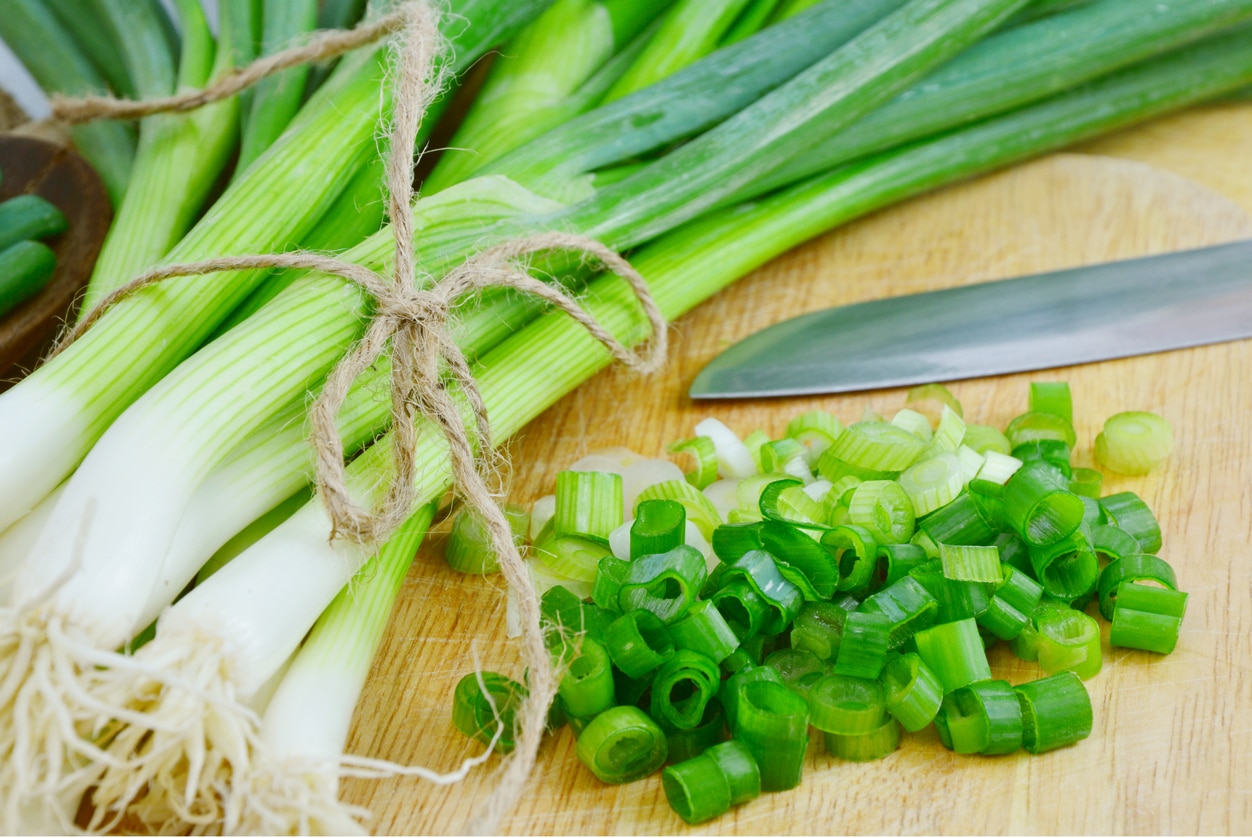
The green onion or spring onion is smaller and sweeter than the others. Unfortunately, it is not found in bunches only in spring or summer. However, it is always a pleasure to find him on this occasion, because we can might as well use it raw (in salad, vinaigrette or to eat as an aperitif) than cooked since it supports cooking very well. It is not uncommon to sauté it with vegetables or to find it in roasts and dishes with sauce. Its only drawback is that this early vegetable does not keep long unless frozen. Allow about a week in the vegetable drawer of your refrigerator.
4) Pink onion from Brittany
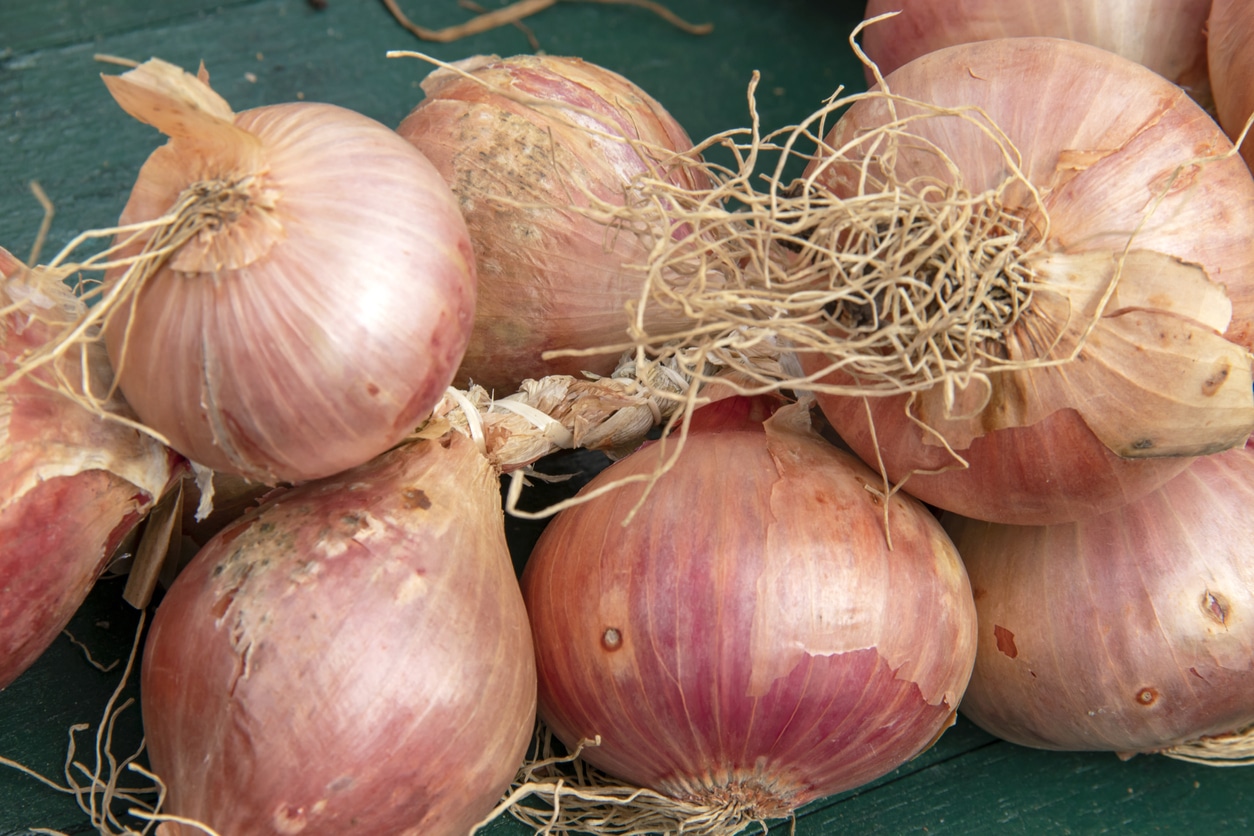
Often less known than the others, the pink onion from Brittany or Roscoff onion is only produced in Brittany and has a PDO. Smaller than the yellow onion, this ancient and unique variety stands out for its surprisingly sweet and pleasant flavor. If you don’t like the strong, spicy taste of other onions, this one will surely appeal to you! In addition, it can be eaten both raw and cooked and its conservation is also very good.
Some questions/answers about these different onions…
What is the best onion for health?
In reality, they all bring more or less the same nutritional values. Low in sodium, they are rich in fiber, allicin, vitamins A, C, E, B6 and folic acid, minerals (potassium, iron, phosphorus, calcium, manganese, zinc, copper and even selenium) as well as in quercetin. Be aware, however, that the more colorful an onion is, the more antioxidants it will provide. In addition, a raw onion will contain more allicin (a compound with antibacterial and antifungal properties) and more vitamin C, which is very fragile in the face of the heat of cooking.
What is the most digestible onion?
This may seem surprising, but raw onions are easier to digest than cooked onions. If you don’t want to eat them raw, you can still blanch them for two minutes in boiling water before cooking them. You will thus avoid digestive disorders common in fragile stomachs (flatulence, bloating, etc.).
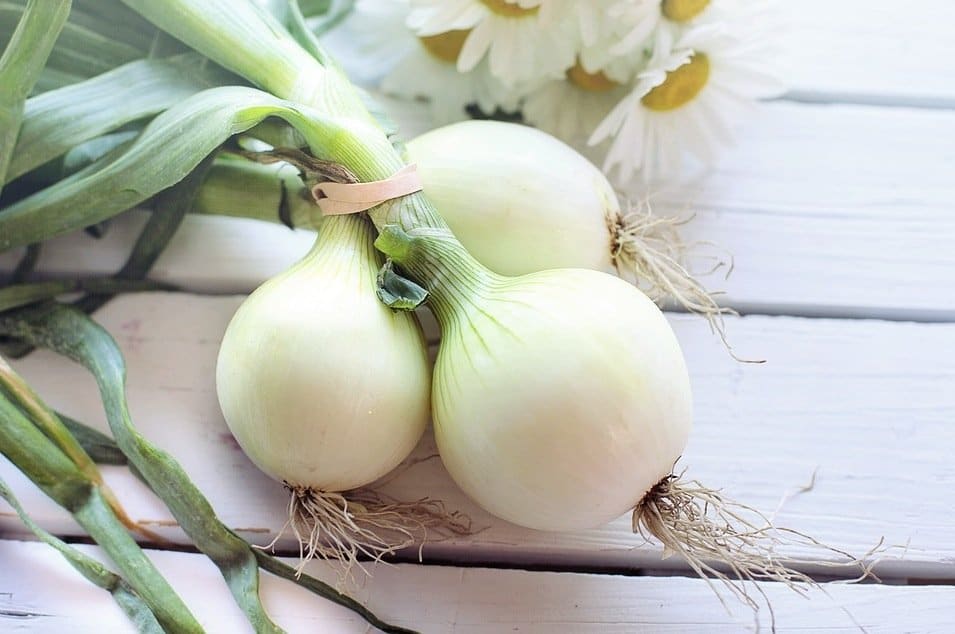
How to avoid bad breath when eating onions
Raw onions are certainly more digestible, but they can cause bad breath. To avoid it, soak the onion in cold water for an hourchanging the liquid two or three times during the operation. It is also possible to soak it in water and vinegar for half an hour if you are in a hurry. In this case, remember to rinse it before cooking it!
How to soften the taste of onions in cooking?
To satisfy the taste buds of the whole family, and even children who may have difficulty supporting the strong, bitter taste of onionsyou can soak them in water for a few minutes before drying them with a clean cloth. This rinse will effectively soften it.
We offered you the same analysis for the different varieties of potatoes. If you like to cook good meals, we invite you to consult this information to always choose the right potato according to the recipe to be made.


